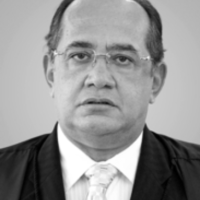Is Brazil’s Electronic Voting System Safe from Fraud and Manipulation?
A Conversation with Justice Gilmar Mendes, President of Brazil’s Superior Electoral Court
The electronic voting system used in Brazil for more than two decades has retained a surprisingly high degree popular trust, despite the consequences of a massive corruption scandal and a severe economic recession that have pushed the approval ratings of elected officials to record lows. In less than one year, 150 million Brazilians are expected to go to the polls to elect a new president, twenty-seven governors, and hundreds of members of federal and state legislative bodies. The October 2018 elections are seen as the most important since the reinstatement of civilian rule in Latin America’s largest democracy in the 1980s; and for the first time, Brazil has requested that the Organization of American States send a formal observation mission. The resilience of the electoral system will undergo a serious stress test, given the current high degree of political polarization and distrust of politicians, and the new (and still under debate) campaign finance rules. Brazil is also home to one of the largest populations of social media users, raising questions about the system’s ability to address the challenge of fake news.
On December 13, Justice Gilmar Mendes, a leading member of Brazil’s Supreme Court and current president of the Superior Electoral Court (TSE), will return to the Wilson Center to discuss these issues in the context of Brazil’s complex political outlook. A specialized organ of the Judiciary branch, the TSE is responsible for regulating and managing elections at all levels in Brazil, as well as settling electoral disputes.
Please note that this event is now being held on Wednesday, December 13th at 3:00pm.
Introduction

Keynote Speaker

Moderator

Senior Director, Albright Stonebridge Group
Hosted By

Brazil Institute
The Brazil Institute—the only country-specific policy institution focused on Brazil in Washington—aims to deepen understanding of Brazil’s complex landscape and strengthen relations between Brazilian and US institutions across all sectors. Read more
